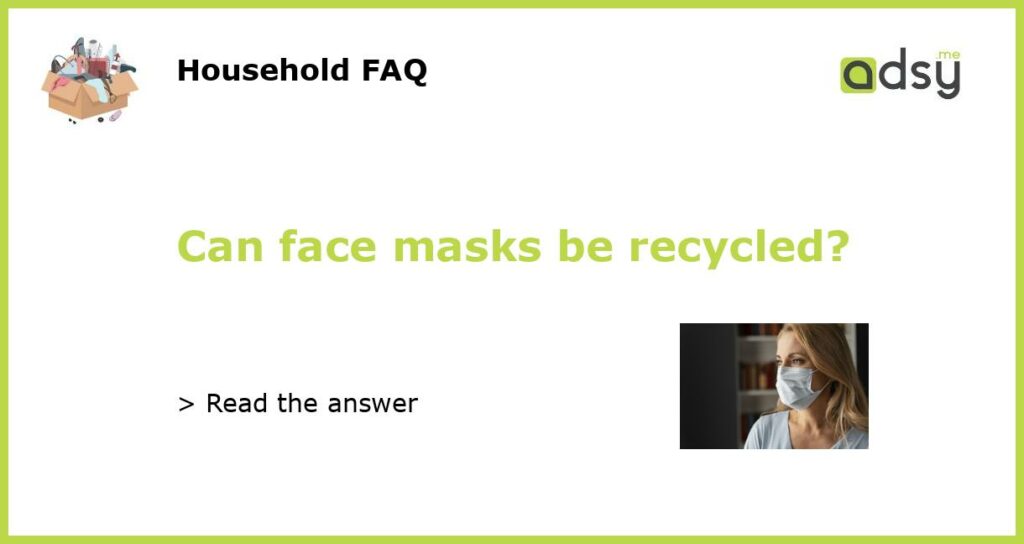What are face masks made of?
Before answering the question whether face masks can be recycled or not, it’s important to understand what they are made of. Most face masks are made of a combination of materials such as polypropylene, polyethylene, and polyester. These materials make the masks durable, moisture-resistant, and breathable. However, they also make it challenging to recycle them.
What happens to used face masks?
Used face masks may end up in the trash, sewage, or on the streets. The disposal of used face masks poses a potential environmental threat, especially if they are not disposed of properly. Used face masks that end up in the sewage system may clog pipes and cause problems in wastewater treatment plants. Additionally, discarded face masks that land on the streets may pose risks to wildlife if they mistake them for food.
Can face masks be recycled?
The short answer is that it depends on the type of mask and the recycling facilities available. As mentioned earlier, most face masks are made of a combination of materials, which makes it challenging to recycle them. However, some companies have created recyclable face masks made of materials like bamboo and cotton. These masks can be recycled through composting or textile recycling programs.
What can you do to minimize your environmental impact?
If you’re using disposable face masks, consider making the switch to reusable masks. Reusable masks are more eco-friendly than disposable masks, as they can be washed and used again. Additionally, make sure to dispose of your used face masks properly. Place them in a closed plastic bag before throwing them away. This prevents them from spreading and helps keep waste collectors safe.
Face masks have become an essential item for preventing the spread of COVID-19. While they are crucial for our health, their disposal presents an environmental challenge. To minimize the environmental impact of face masks, individuals can switch to reusable masks, dispose of them properly, and recycle them whenever possible. By doing so, we can protect ourselves and the planet.






